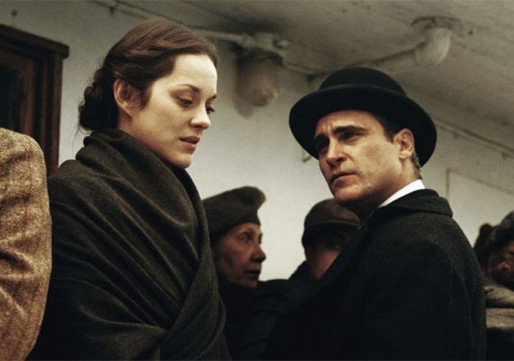Two sisters emigrate from Poland to America only to find it less welcoming than they anticipated in The Immigrant.
In 1921, Poland was in the final year of a critical war for its own survival against the emerging and expanding Russian Bolsheviks led by Vladimir Lenin. The resulting devastation drove many Poles to flee the country for other parts of Europe and America in hopes of a new beginning. Tens of thousands of Poles found their way to Ellis Island during this period, many with nothing more than the clothes on their backs to claim as possessions. They would find America to be both a land of opportunity and of opportunists. The latter were continually on the lookout for desperate foreigners who could easily be duped into any number of unscrupulous activities for fear of being deported.
Cowriter/director James Gray introduces us to Ewa (pronounced “Eva”) Cybulski (Marion Cotillard), who has fled her native Poland along with her sickly sister Magda (Angela Sarafyan). At Ellis Island, Ewa meets a charismatic American businessman named Bruno Weiss (Joaquin Phoenix), who seems to take pity on her plight and offers her a place to stay. Almost immediately, Ewa senses that everything isn’t as it seems but finds she has few options other than to trust in her mysterious benefactor. He is a partner of sheer necessity.
Along the way, she meets a vaudevillian magician, Emil (Jeremy Renner), who finds her captivating. Emil, however, is Bruno’s cousin, and Bruno sees Ewa as his property and responsibility. Someone will have to give ground, but neither man is the type to do so easily.
The film relies on the performances of its three main stars to do the heavy lifting. Cotillard delivers a flawless performance that underscores the desolation and futility that a foreigner of the period must have felt. Phoenix and Renner do the best they can with the characters as written. Unfortunately, both roles are fundamentally flawed in their own ways. Bruno vacillates wildly between two contradictory extremes, while Emil simply isn’t fleshed out enough.
There’s nothing wrong with the look of the film. It feels just like what you’d expect from 1920s New York City. Everything is authentically pale, dirty and in a state of disrepair — most strikingly the people. The real letdown is the plot itself. It’s just too long and dull for what it is. We only care about Ewa, but her own actions are often questionable and never fully explained. By the end, we’re just glad we can finally emigrate from the theater.



